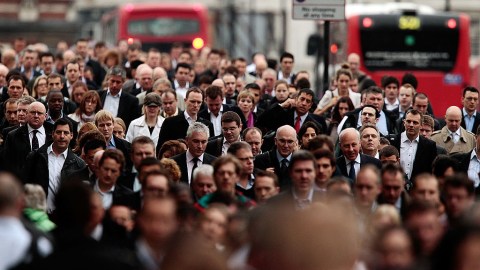How U.S. Commuters Differ from Commuters in Other Countries

Researchers have created a chart to show how the U.S. stacks up in comparison to other countries when it comes to the average commute distance and cost of commuting. In sum, America shows up as a clear outlier when compared to other developed nations.
The average American household spends 18 percent of its overall budget on transportation, while the average for non-U.S. countries studies was a much lower 12.9 percent. That’s about a $1,500 difference each year.
Americans also spend more time in traffic than others. The average commute time for U.S. workers to get to work and back home again is 51 minutes, compared to 39 minutes a day for workers in other countries in the study.
The research gives a new dimension to past studies that have shown the harmful impacts of commuting. Children, for example, are more likely to have social and emotional problems if their father has a long commute to work. And commuting more than 10 miles a day in general is associated with health risk factors like higher blood sugar and cholesterol levels — not to mention anxiety and depression.
Those who work in big cities have the hardest time escaping long commutes. A 2013 study showed that in DC, Los Angeles, and San Francisco, the average American car commuter spends 60 hours a year stuck in traffic. And while the numbers were lower for the average U.S. car commuter overall (38 hours a year), people still spend a full work week each year on the road to and from work. On the positive side, however, the number is slightly lower than the peak of 2005, when commuters spent 43 hours a year in traffic to or from work.
—
Header Image: Matthew Lloyd / Stringer





